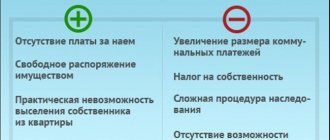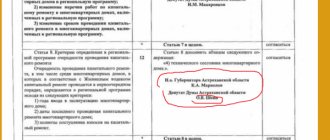Federal Law on the Treatment of Animals - main provisions and prohibitions
On January 1, 2021, the law on the responsible treatment of animals came into force, the adoption of which in Russia had been awaited for 8 years. The new law provides for measures to protect animals from cruelty and ensure the safety of citizens when interacting with them. It actually prohibits the organization of petting zoos, as well as experiments on animals and keeping wild animals at home. Read about what requirements for keeping domestic and stray animals have come into force, how the latter should be caught and placed in a shelter and other provisions of the law in the material of the mosreg.ru portal.
What to do if a rabies quarantine has been declared in the municipality of the Moscow region>>
What provisions will come into force in 2021
Source: RIAMO
The Federal Law on the Protection of Animals came into force from the moment of its publication - December 29, 2021. In addition to certain parts that come into force on January 1, 2021:
— Part 6 of Article 13 on the ban on walking potentially dangerous dogs,
— Article 15 on the requirements for the use of animals for cultural and entertainment purposes;
— Article 16 on animal shelters;
— Article 18, which concerns the organization of events for the treatment of animals without owners;
— Articles 19-20 on state supervision and public control in the field of treatment of animals;
— Article 22 on the confiscation of wild animals in captivity.
For violation of the requirements of the law, animal owners and other persons bear administrative, criminal and other liability in the prescribed manner.
Autumn-winter ban on fishing in the Moscow region. Infographics>>
Animal abuse
Source: Photobank of the Moscow Region, Irina Artemova In accordance with the requirements of the new law, animals must be treated as “creatures capable of experiencing emotions and physical suffering.”
When handling animals the following are not allowed:
— carrying out veterinary procedures on animals without the use of painkillers that can cause unbearable pain in animals;
— setting animals (except service animals) against other animals;
— refusal of animal owners to fulfill their obligations to care for animals until they are sent to animal shelters;
- trade in animals in places not specifically designated for this;
- organizing and conducting entertainment events that entail injury and mutilation of animals, or killing of animals.
A ban is also introduced on the production, display and distribution of audio, photo and video materials demonstrating cruelty to animals anywhere, including on the Internet.
What to do if you are bitten by a viper. Infographics>>
Potentially dangerous animals
Source: Photobank of the Moscow region, Tatyana Korobeinik
The law contains the concept of potentially dangerous dogs - “certain breeds, their hybrids and other dogs that pose a potential danger to human life and health.” The final list will be approved by the federal government.
Walking a potentially dangerous dog without a muzzle and leash is prohibited. If such a dog is kept in the owner's fenced area, a warning sign must be posted at the entrance. It is provided that animals included in the list of prohibited animals and acquired before January 1, 2020, may be kept by their owners until their natural death.
How to get a hunting license in the Moscow region>>
Pet care
Source: Photobank of the Moscow region, Tatyana Korobeinik
Owners must conscientiously care for their animals and provide them with timely veterinary care. Also, pet owners must control the movement of animals when crossing roads, in elevators and common areas of apartment buildings, as well as in the courtyards of such buildings, on playgrounds and sports grounds.
According to the new law, pet owners must clean up their waste products in public areas. In addition, it is prohibited to walk your pet outside the areas approved by the local government.
Areas for walking dogs in the Moscow region. Infographics>>
Shelters for homeless animals
Source: Photobank of the Moscow region, Vladislav Bashkirov
The law categorically prohibits the killing of animals under any pretext and provides for the creation of special shelters. In addition, fighting involving animals is prohibited, and there is a ban on getting rid of animals without transferring them to a new owner or placing them in a shelter.
The law contains requirements for animal shelters - they can be state, municipal and private. Owners of private shelters can be individual entrepreneurs or legal entities.
Shelters are required to post information about it on the Internet no later than three days from the date of receipt of the animal, as well as keep records of the receipt and departure of animals.
In shelters, animals can be kept until natural death or the return of such animals to their former habitats or the transfer of such animals to new owners. Animals are prohibited from being transferred for use for laboratory purposes, and if it is necessary to euthanize a pet, this procedure itself can only be carried out by a veterinarian using humane methods that guarantee a quick and painless death.
Animals that have information about their owners on collars or other items are handed over to their owners.
Limit for the production of hunting resources in the Moscow region in 2018–2019. Infographics>>
Animal capture
Source: Photobank of the Moscow region, Vladislav Bashkirov
Animals with a collar and contacts of the owner, as well as animals without owners and with permanent or indelible marks, with the exception of aggressive ones, are not subject to capture.
At the same time, the owners of the objects are obliged to report the presence of animals on their territory without owners, who do not have permanent and indelible marks, and also to provide access to the specified objects to representatives of the catching organization.
Ecotourism in the Prioksko-Terrasny Nature Reserve: how to visit a goblin and “adopt” a bison>>
Prohibition on keeping wild animals in apartments
Source: RIAMO, Alexander Manzyuk
Experts note that some provisions of the new law need to be improved. For example, the government has not yet approved a list of wild animals that will be completely prohibited from being kept in apartments. An exception will be the use of such animals in zoos, circuses, dolphinariums and oceanariums, as well as as service animals. The ban will apply to animals acquired by owners after January 1, 2021. The law also legalizes the existence of centers where animals are kept in semi-free or artificially recreated habitats, implying their further release into the wild.
How to obtain permission to breed hunting resources in the Moscow region>>
Licensing of circuses and zoos
Source: Photobank of the Moscow region, Sergey Gordeev
The law prohibits the use of animals for cultural and entertainment purposes when physical contact between visitors and the animals is possible.
You cannot keep animals in shopping centers, bars, cafes and restaurants, and you cannot feed predators with other living creatures in public places.
Before 2022, all Russian circuses, zoos, dolphinariums and oceanariums will have to obtain a license to operate.
Fostering pets in the Moscow region: where to leave your pet and how much it costs>>
IT'S EASIER WITH A CHIP
Pekhorka Park is not crowded today, even the six playgrounds are quiet - it’s clear that families are intensively preparing for the new academic year. Liliya Kretova, the owner of a friendly Spitz, does not have a family yet, but she has a beloved dog, which the girl is going to protect from trouble.
“Miguel is a very kind and cheerful dog, he loves children, gets carried away quickly and can run headlong after the person he likes,” says Lilya. – I am very afraid that he will get lost, and more often he walks on a leash. But I don’t want to limit his freedom, so I decided to put a chip on Miga. I will be calm if I know that I can always find him. I think all loving owners will support my opinion, because animals are like family members, and we are responsible for their safety.
Last year, the Ministry of Agriculture developed a bill on mandatory microchipping of pets - marking dogs, cats, hamsters, guinea pigs and so on will make it possible not only to find them if they get lost, but also to save them if their owners want to get rid of them. This means there will be no homeless animals.
“There are chips for identifying animals,” explains Dina Sharipova, the chief veterinarian of the veterinary clinic in Ivanteevka. – The cost of microchipping with sending information about the animal to a unified electronic database and entering the chip number in the passport is 700 rubles.
Will there be a maintenance tax?
Long before the publication of the new law, many media outlets (including eminent ones) discussed in every possible way the topic of the possible introduction of a tax on keeping pets, which exists in most developed European countries. Some sources even provided the expected prices, which frightened many residents of the country, although such reasoning was completely groundless.
There will be no pet tax.
Yes, during the initial discussion of the project this possibility was seriously considered. However, as soon as information about this reached public organizations, activists created a petition, the main demand of which was not to introduce this tax. The petition was signed by more than 200 thousand people, so the State Duma abandoned this innovation.
Moreover, according to the head of the ecology committee, even the procedure for registering animals should be free. Thus, even low-income segments of the population will have the opportunity to register their pet, which will help regulate the number of animals and monitor their population in more detail.









